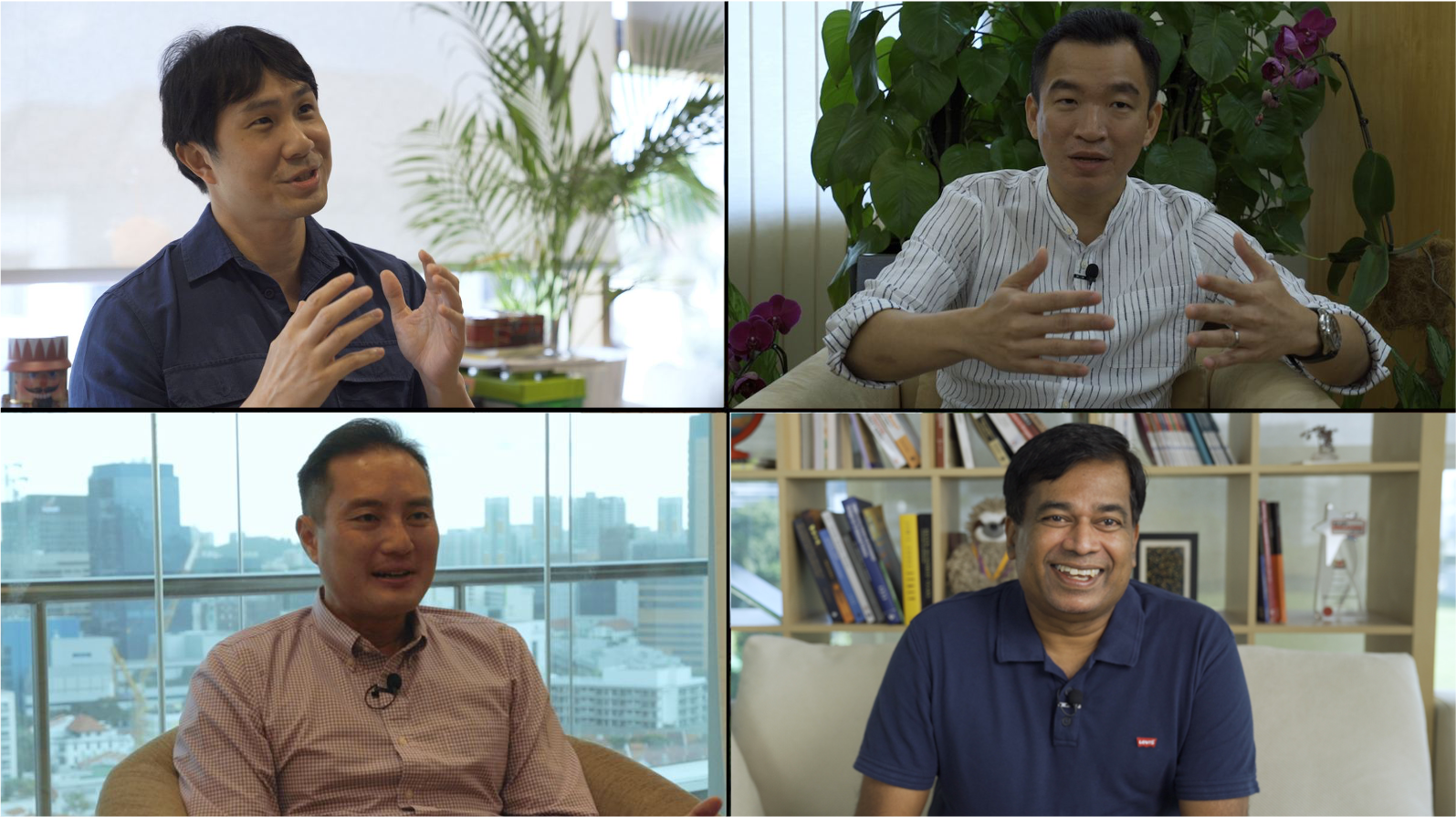It's easy to be a father in comic books.
You don't have to do much in your life to give the hero ample motivation to fight crime and save the world.
Think of Jor-El, stuffing baby Superman into a rocket before the planet Krypton blew up. Or Thomas Wayne, gunned down in an alley to give Batman his never-ending crusade for justice.
But in the real world, fathers do much more than just give their offspring a better future.
While Singaporean society still expects fathers to take on the role of the "provider of the family", an increasing number of fathers are also helping out with feeding and cleaning and changing, shouldering the responsibilities of raising a child together with their partner.
Sticking around and making sure their little terrors grow up to be responsible members of society — now that's real superhero work.
Four fathers
For this Father's Day, I spoke to four men in the public eye.
All are politicians from a range of political parties and entered politics slightly more than a year ago during GE 2020.
Three are Members of Parliament (MP), and two hold posts within the Singapore government. All four have distinguished careers, in addition to their political or policy work. And all four are fathers.
Tan Kiat How, 44, is the Minister of State for National Development and Communications & Information, and the Chairman of feedback unit Reach. He is a People's Action Party (PAP) MP for East Coast GRC, and has a young son.
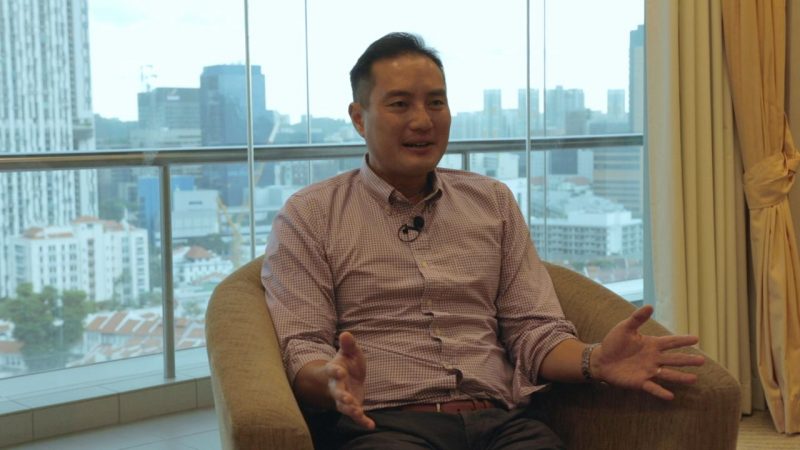 Photo by Mothership.
Photo by Mothership.
Eric Chua, 42, is the Parliamentary Secretary for Social & Family Development, and Culture, Community & Youth. He is a PAP MP for Tanjong Pagar GRC, and has a young son.
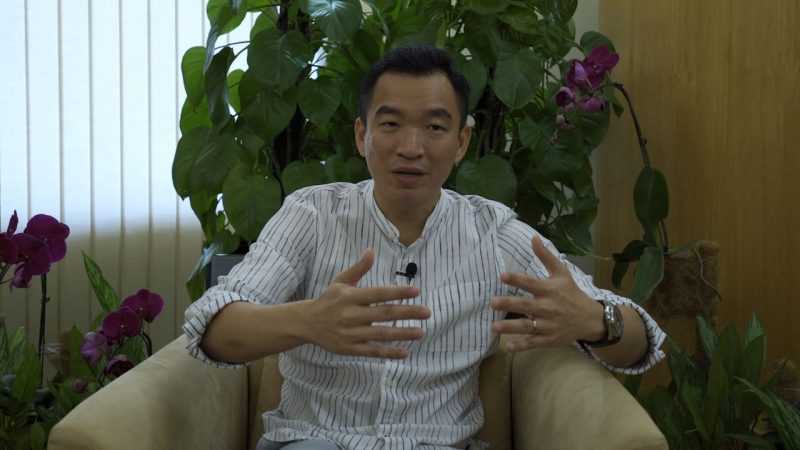 Photo by Mothership.
Photo by Mothership.
Jamus Lim, 45, is an Associate Professor of Economics at ESSEC Business School. He is a Workers' Party (WP) MP for Sengkang GRC, and has a young daughter.
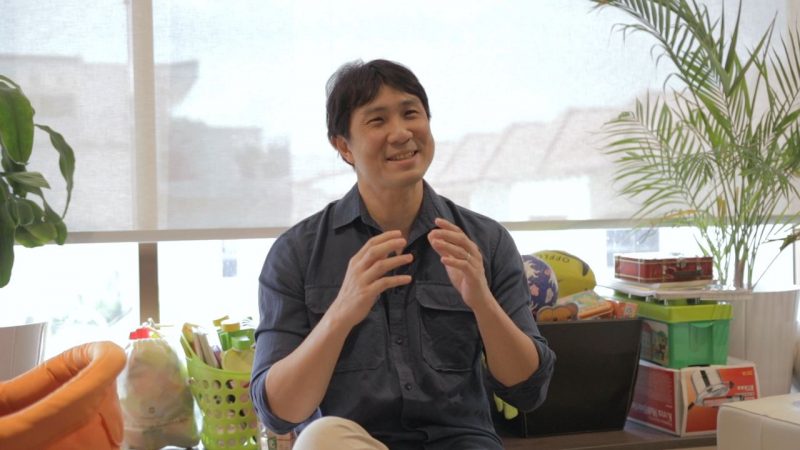 Photo by Mothership.
Photo by Mothership.
Kumaran Pillai, 50, is a former journalist and CEO of Apple Seed, a venture accelerator managing multiple companies. He is the media spokesperson for the Progress Singapore Party (PSP) as well as the party's GE2020 candidate in Kebun Baru. He has two daughters.
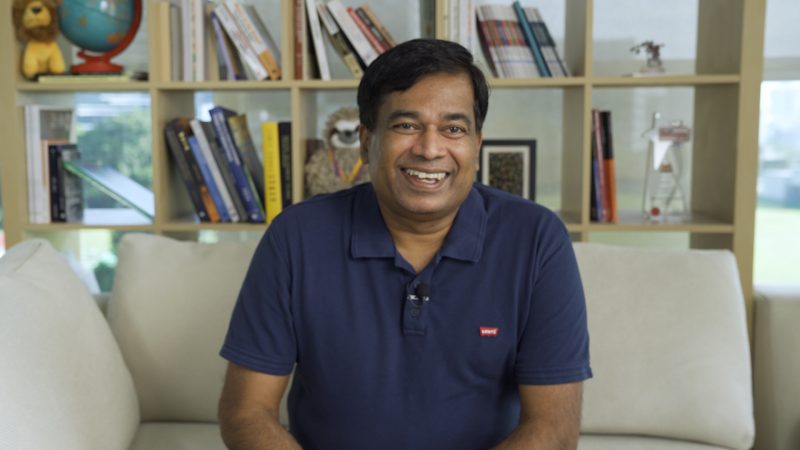 Photo by Mothership.
Photo by Mothership.
Deciding to become parents
Q: How did the conversation between you and your wife go, when discussing whether or not to have children?
Tan Kiat How:
"I don't think we had a view that we must have a baby or must have kids in the family. I think we always said we'd love to have kids, love to have someone together with us. But we always said, even if we can't have kids, that's something we can't help right?
We were even contemplating whether we want to adopt, but we didn't get to have that conversation. It was a matter of we love to have kids, and if it happens it's a blessing, but if not I think we're happy being a couple, with our two dogs at home."
Eric Chua:
"We got married quite young...us being us, we kind of want to focus number one, on our careers. Number two, we want to focus on travelling the world as well...and so the kid conversation came along sometime (in the) early years of our marriage, but we decided just to focus on careers and travel."
Jamus Lim:
"I was married later in life, my wife is a couple of years younger than I am...After we were married, we had quite a bit of time before we decided to have a child. There was an extended of period of time, as you can see...it was ten years, essentially before we started our family.
That meant that we really had a lot of time to think about what it meant to be by ourselves and what our aspirations were for our careers (and) as a family unit. And I think we both arrived at a point where we decided that it was important enough for both of us to want to move on to the next step of expanding our family, to have an influence on the next generation going forward."
Kumaran Pillai:
"20, 21 years ago, things were very different back then. The cost of living wasn't so high. We were young adults, that was three years into my marriage, so we kind of deferred going down the family way, fatherhood and parenthood, because my wife was doing her postgraduate diploma in education, teaching. So we kind of deferred that."
Challenges of starting a family
Deciding to start a family is one thing, but as many parents would know, the road to actually starting one is fraught with challenges.
Pregnancy, for instance, can be difficult even during a time of modern medicine.
Kumaran recalled his shock when he was told by a doctor early on during his wife's first pregnancy that the baby needed to be terminated due to its weak pulse. Thankfully, he and his wife found a specialist who guided them and helped to bring the baby to full term.
For Chua, his son was conceived after multiple In-Vitro Fertilisation (IVF) attempts. The process was not easy for the couple, he said:
Q: What were some challenges you anticipated before becoming parents? Were there concerns, perhaps financial?"If you speak to some of them (couples undergoing IVF) more in-depth, it can be quite an emotional experience. Every time I see my wife, you know, injecting hormones, the whole process just wasn't...but it made the delivery from the stork even more sweet."
Chua:
"One of the key things that we were most concerned with was, 'hey, would we be adequate parents?'"
Tan:
"For me and my wife, I think the most important consideration that we had was whether we would have enough time to spend with a kid...or if more than one kid next time, whether we would spend more time with them. And whether we can give them enough attention, and enough care, and enough quality time."
Kumaran:
"I was running a start-up back then, so when we decided to have the kids, the first child, things were quite good. Money wasn't a concern. But after childbirth, there was the dotcom bubble bust in 2001, 2002. So my start-up went bust and I had to deal with a lot of stuff, really living a hard life in the city."
Lim:
"I think we do ourselves a bit of injustice when we try to overthink (the issue). Of course, you want to provide for your child. But I think we overthink it a little bit too much when we stress out about 'Oh, can I afford to put this child through university'. I think that for our job as parents, the most important job is to impart values, and to set the environment for them to find their own way and to succeed."
Becoming parents in a pandemic: Lim, Tan & Chua
If becoming new parents is tough, then becoming new parents during a pandemic is definitely much harder.
Tan recalled that obtaining necessities, such as bottles and breast pumps, was harder due to the Circuit Breaker. Also, neither his parents nor his in-laws could drop by.
But an even more harrowing experience was having to rush his wife to the hospital twice.
"One month plus before the baby was due, she woke up in the middle of the night, bleeding. So we rushed down to the hospital," he said.
The doctor gave her some medication, had her stay the night for observation, and let her return home the next day.
A week later, Tan's wife experienced sudden bleeding again in the middle of the night. They rushed to the hospital once more, and this time his wife was taken to the operating theatre for delivery.
But because of the safe management measures, he couldn't join his wife in the operating theatre. He had to wait outside until it was all over, with "some anxiety".
For Chua, the Malaysian Movement Control Order prevented their confinement nanny from coming over to Singapore. This meant that he and his wife had to deal with their newborn by themselves.Even though Chua's experience as a Singapore Civil Defence Force officer trained him to stay calm under pressure, he recalled that he was quite jittery when he was entrusted with bathing the baby for the first time.
"The baby comes, crying. You will try your best to be calm, but in your mind, you know you're fluttering."
A parent and a politician
Of course, Covid-19 wasn't the only big thing to hit Singapore headlines last year.
Singaporeans went to the polls to cast their votes during GE2020, with all four standing as candidates for the first time. Chua, Tan and Lim would win their contests and be seated in Parliament, with Kumaran missing out.
Some might say that being a politician and a father (and a new one at that) is like taking on two full-time jobs, and all four said that they could only do it all with the support of their family members.
Tan said it was very tough on his wife, while she was out campaigning. While he was walking the ground and meeting lots of people, she was by herself. Covid-19 restrictions still applied and people couldn't drop by to help out.
"I really thank her very much, from the bottom of my heart," he said.
Tan was also concerned about bringing back the virus after interacting with members of the public on the campaign trail so he was very diligent about sanitising and cleaning himself thoroughly before returning home to his pregnant wife.
While many Singaporeans might recall Lim's performance during a televised debate with Minister Vivian Balakrishnan, Chee Soon Juan of the Singapore Democratic Party, and PSP's Francis Yuen, not many people might know that he had been up for hours the night before, attending to his baby."She was going through a growth spurt, so she woke up in the early hours of the morning. At the time she wouldn't return to sleep easily, so I remember I held her for maybe an hour and a half that night."
He only returned to bed at around 5:00am, before going through a full day of campaigning. But the night wasn't over yet.
"I was like wiped, right. So it was Red Bull time. I had a Red Bull and that was what kept me just going, it gives you wings, as they say...but I was exhausted," he shared.
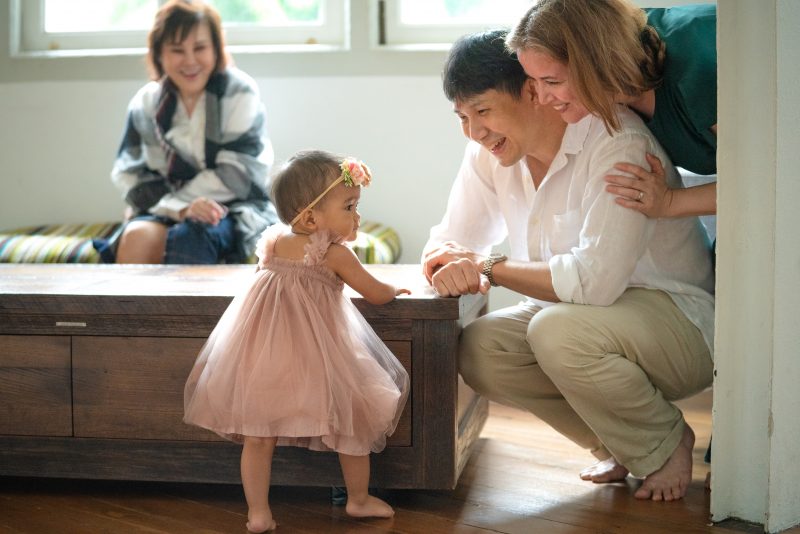 Photo courtesy of Jamus Lim.
Photo courtesy of Jamus Lim.
He added that he had no regrets about staying up with his daughter even though he had the big debate the next day, as she was and remains his number one priority.
Lim also credited his wife for shouldering more of the burden while he was out campaigning, as he could only help out at night.
Kumaran's daughters are much older, and fortunately they were quite supportive of his decision to stand for election.
Although he became a politician fairly recently, he was involved in civil society before that, and they were quite used to him being in the public eye.
Q: What are some of the sacrifices you've had to make, juggling your various responsibilities? How do you find the time to be a father?
Tan:
"Sacrifice would be too strong a word, for me it's about prioritisation...but I think some adjustments have to be made. Less time for myself. Before I joined politics I used to go for long runs...an hour, an hour and a half at least once a week just to clear my mind, think about things. I can't do that anymore, so you have to adjust...I think these are adjustments we all make, but we do so quite happily, so not really a sacrifice."
Chua:
"Sleep is something that is never quite enough...I wake up earlier now to get some time with the kid and my wife. Exercise a bit less now, I work out less...but to me it's also amazing that this little fellow is stepping all over you, crawling all over, kicking your face...and you're still OK with it."
Lim:
"I would read (to my daughter) every night before bed. It was our routine...but we broke that routine during the campaign period and it has been really difficult for me to sit and read to her now. She now gets very restless. Because we broke that routine, I've lost that. I try still, but it's more like I'm chasing her around with a book."
Kumaran:
"You just have to work around things...but when they were a bit older, they could handle things themselves, so it was easier."
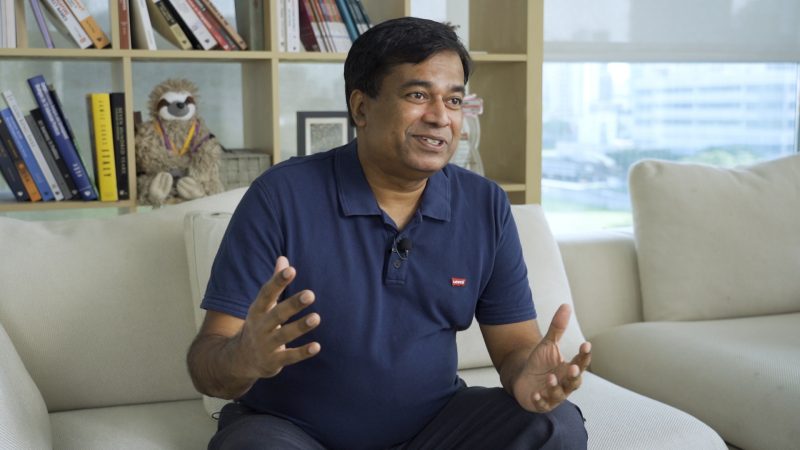 Photo by Mothership.
Photo by Mothership.
Teaching the offspring
Kumaran shared that while he taught his daughters skills like riding a bike when they were younger, he now appreciates when his daughters challenge his views on various topics.
He added that he learned how to communicate more effectively, moderating how he speaks to others.
Lim said he hopes his daughter will learn values that he treasures, such as compassion, tolerance and caring from others.
"I feel that our role as parents is just to impart what we feel are good values, universal values," he said.
Tan shared that his own father and early education instilled certain values of being a constructive and productive member of society, and giving back to society.
He hopes his son will have the same sense of resilience, perseverance and being principled, the sense that "no one owes us a living", which served Singapore well in the past.
Chua said that we have to remember that every child is an individual with their own aspirations. "You should just look at him...and try to help him discover what he's really good at or passionate about."
The next generation
According to the latest population census, which was released on June 16, fewer Singaporeans are getting married or having children, with younger Singaporeans likelier to stay single.
This hasn't escaped the notice of the two men in government. When asked what policies are in place to help ease the burdens of young parents, Chua pointed to the second compulsory week of paternity leave, enacted in 2017.
However, Chua's bigger hope is to foster a different attitude towards the role of fathers, becoming more involved in raising their children, which also helps their development. But he acknowledged that even with certain rules in place, it takes a bigger effort for a culture shift.
Tan pointed out that becoming a parent is a personal decision that boils down to individual choices, and every family has its own unique considerations.
"In Chinese, there's this saying, 家家有本难念的经 (every household has its own set of challenges)...it's still a very personal choice."
He believes that parents may be most concerned about having enough time to spend with their children, or cutting down on disposable expenditure, especially if a parent has to give up a job.
"I think where society and the government as a whole can make things easier...(is to build) more childcare centres, more infant care centres, more supporting structures for the caregiver...secondly, encouraging companies to be more flexible in terms of organising their work, giving time off for parents (when needed)."
He also feels society has to change its mindset, and men have to see themselves as an equal partner in raising a child.
From the opposition bench, Lim said he would continue pushing for smaller class sizes, something raised by young parents in Sengkang. On a more personal level, he noted that families would prefer their children to attend schools closer to their homes.On Kumaran's part, having lived through hard times himself, he recalled dipping into his own pocket to help out a father who couldn't afford necessities like diapers and milk. He added that work culture is changing, with working from home becoming prevalent, and the PSP supports this as young parents have more time to spend with their children.
Q: What message would you like to send to fathers and people considering becoming fathers for Father's Day?
Tan:
"It's been a very satisfying (journey). Sometimes you get tired, sometimes you get frustrated, you feel different pressures and stresses. But at the end of the day when I wake up, and see (my son)...the first thing he does is he smiles. It just makes me feel thankful for small things. And when he goes to bed and night, and I see him sleeping, I feel a sense that I've done something right."
Chua:
"So I think it's a personal choice. What we're not trying to do is say, 'Hey, you must go this way'...I actually wouldn't think I would ever say this, but the joys of being a father (are) just really priceless...What I'm zooming out for when I look at my day's schedule is what time do I end? Because if I know that I reach home (late), that's it. No time with my boy."
Lim:
"I'll always encourage them, that parenting can be exhausting and discouraging at times. But to look back on why we even went down this path of parenthood, of fatherhood it is because we wanted something...to impart our values to the next generation, and to help them thrive and prosper and flourish.
And so in those times when you are dead tired because your child kept you up at night and you have an important meeting the next day. For all those times when your child is stubborn and fighting you to eat or to sleep, when you have other things you still have to do for the rest of the day. Just remember why you had the child, because you want to have the next generation thrive. And I think when you remember that original purpose, the original premise, you will once again find within yourself, the strength to to keep going...and to enjoy, to find joy in what you're doing."
Kumaran:
"What I want to emphasise is that fatherhood is a gift. It's a privilege. And if you're lucky enough to be a father, embrace it, and spend a lot of time while you're still around, and pass on all the values, all the things that mean a lot to you down the line."
Singaporeans wishing to take part in the conversation of "Building a Singapore that is Made For Families”, may register at this link. Feedback and suggestions are welcome.
Top image by Sulaiman Daud, Jamus Lim and Tan Kiat How's Instagram page.
If you like what you read, follow us on Facebook, Instagram, Twitter and Telegram to get the latest updates.
